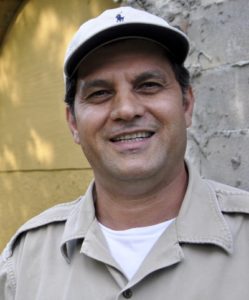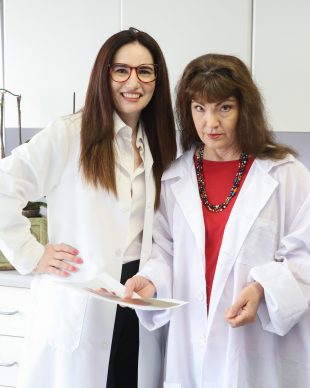August 09, 2019

A family dispute by two Iranian brothers over a treasure trove of 49 Persian carpets has been resolved in an Arkansas courtroom where the jury awarded the carpets to one brother and a third of a million dollars to the other.
The courtroom clash between two brothers, one a dealer and the other a collector, ended August 2 with one brother winning a $362,000 judgment from a Pulaski County jury that recognized the second brother as the rightful owner of the carpets.
The jury verdict, delivered to Circuit Judge Tim Fox after about 90 minutes of deliberations, came after the eight women and four men heard three days of testimony about the years-long feud between the once-close brothers, Iranians who moved to Pulaski County more than 40 years ago and have since become naturalized citizens.
The jury’s cash award to Turag Ronaghi represents about 20 percent of the $1,885,660 the 61-year-old Little Rock man had asked for, based on his estimate of the value of the carpets, $316,600, plus a $1,569,060 bill for cleaning his brother’s 2,477-piece rug collection, which had been smoke-damaged by a chemical plant explosion.
But the jury’s finding that his brother had breached a contract to pay him for the cleaning job means that Ronaghi can further demand that his brother pay his legal expenses in an amount to be decided by the judge at a later proceeding.
Ronaghi, the owner of Ronaghi International Rug Gallery in Little Rock, sued his brother two years ago, alleging breach of contract for the cleaning work and over ownership of the rug set.
Ronaghi said the rugs were his. He told jurors he’d delivered the 49-piece set to his brother, who had refused to pay for it while also reneging on a promise to pay Ronaghi for the cleaning job, a repair process that took almost four years of meticulous effort.
His brother, Irag Rovnaghi, 66, a North Little Rock landscaper, countersued over ownership of the rugs, which he valued at about $153,825, saying he and his wife had bought them in Iran in 1999.
In closing arguments, Rona-ghi’s attorney, Peter Kumpe, told jurors that only his client could produce documentation from his business records to prove his version of events. Kumpe told jurors that some of the best evidence to prove Ronaghi’s claim came from a third brother, Tavakol Ronaghi, 58, a rug dealer and landscaper who testified on his behalf, the Arkansas Democrat Gazette reported.
Kumpe said Rovnaghi’s case was built on counterfeit documents and a series of lies to take advantage of Turag Ronaghi’s hard work, even though that effort had restored Rovnaghi’s rug collection to its full value of almost $5 million.
Rovnaghi’s lawyers, Chad Green and Josh Gillespie, told jurors that Ronaghi’s claims were motivated by greed and fueled by a series of financial setbacks that left him indebted to Tavakol Ronaghi. It is Turag Ronaghi who used false documentation to bolster his claim that he had been taken advantage of, Green said in closing statements.
Green also mocked Ronaghi’s claim that he was owed almost $1.6 million for cleaning the Rovnaghi carpets, telling jurors the evidence showed that there was never any agreement between the men for Rovnaghi to pay. Ronaghi was supposed to have been compensated from an insurance payout that never materialized, Green said.
Rovnaghi’s carpet collection was seriously damaged in August 2007 by smoke and debris from an explosion and fire that destroyed the Advance Fiberglass plant next door to where Rovnaghi and his wife, Pegah Deheshmand, 41, were building a home and storing the rugs. Their collection was said to be one of the largest individually owned collections in the world.
The couple eventually sued the fiberglass maker in July 2010, which resulted in a $700,000 settlement in 2014, $560,000 of which went to Rovnaghi and Deheshmand after legal fees, according to testimony.
Ronaghi testified that he had agreed to handle the cleaning work with the understanding that he would be paid once the lawsuit was resolved. He told jurors that Rovnaghi settled the case without telling him first and paid him only $50,000 for his efforts.
Rovnaghi told jurors that Ronaghi’s payment arrangement was with the insurance company, not him, but that he had felt sorry when he learned that Ronaghi was not going to get paid. To make up for the loss, out of love for his brother, Rovnaghi said he gave Ronaghi $50,000 from the settlement and allowed his brother to choose the best rugs from his collection, a 140-piece set that he said was worth at least $500,000.
Ronaghi told jurors that those 140 rugs were his to begin with. He said Rovnaghi had agreed to purchase them in 2007 but never paid him after taking possession of them. Ronaghi testified that he hired a lawyer to get the rugs back and that his brother surrendered 91 of them but withheld 49 rugs — the set in question at the trial. Of that set, 46 are missing and unaccounted for, court records show.
The brothers, whose family has been in the rug business as sellers and makers since 1840, disagreed on almost everything at the trial, including the value of the carpets. One issue was the worth of an antique Amughli, described in some records as a “magnificent masterpiece.”
Ronaghi testified that he had bought the rug for $91,000 in 1992 and now considered its worth $125,000. Rovnaghi told jurors that he’d paid about $3,600 for the rug in 1999 and said he would pay at most about $6,500 for it now.























